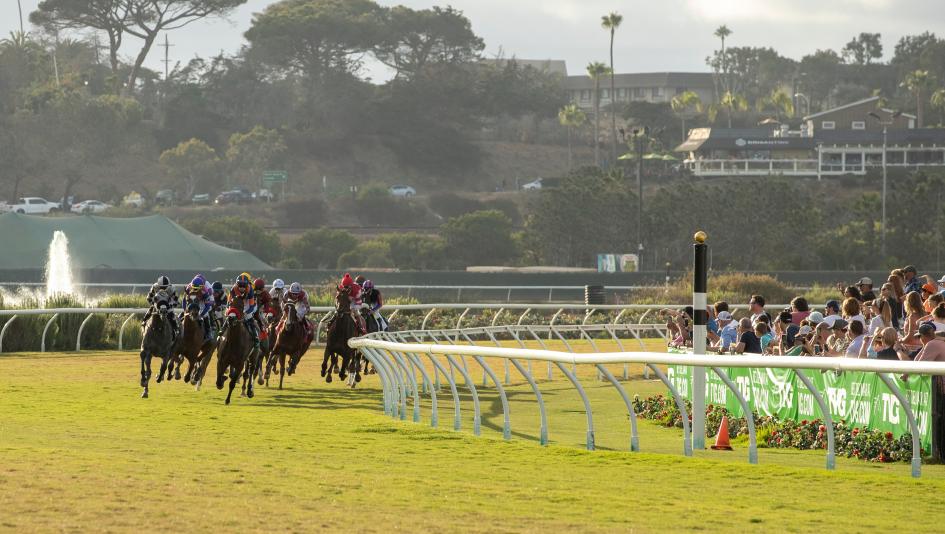Winning the coveted U.S. Triple Crown, which consists of the Kentucky Derby, Preakness, and Belmont Stakes is highly prized in the sport of horse racing.
The Breeders' Cup, a 14-race spectacular that serves as the year-ending championship of American horse racing, receives almost as much attention.
As a result, it can be simple for a horse, jockey, or trainer to fall through the gaps of history if they fail to win one or more of these illustrious races.
One of the greatest jockeys, Sandy Hawley, exemplifies this in this regard.
True, Hawley never took home the trophy at the Breeders' Cup, the Kentucky Derby, the Preakness, or the Belmont. But his numerous other triumphs, which were astounding in quantity and importance, cemented his status as one of the game's all-time greats.
Hawley nearly won every race to succeed in his native Canada throughout a 30-year career in 1968. Hawley began riding at the age of 19 and became an instant celebrity. In 1969, he won 230 races, which led all apprentice riders in North America. He was born on April 16, 1949. In 1970, he dominated North American jockeys by winning 452 races - whether as an apprentice or not. A year later, he won 367 races to retain the championship. In 1973, he easily surpassed Bill Shoemaker's previous record of 485 victories by being the first jockey to win more than 500 races in a calendar year by leading his mounts to the winner's circle 515 times.
Hawley set his sights on the United States and started riding in California in 1975 after thoroughly dominating Canada, where he won more races than any other jockey in the country for six consecutive years. He was successful right away, and in 1976, he attained the sport's highest point. With an impressive 413 victories, he once again led all jockeys in North America. Still, more significantly, he triumphed in an astounding 17 graded stakes contests from coast to coast and Canada, winning on the promising 3-year-old Majestic Light, champion turf male Youth, and veteran California-bred Ancient Title. Hawley received the Eclipse Award for an outstanding jockey in 1976 in recognition of his achievements.
When Hawley rode Cascapedia regularly in 1977, she won the Grade 1 Vanity Handicap, the Milady Handicap, and the Hawthorne Handicap, earning her the Eclipse Award as the best older female.
He continued to have success riding Ancient Title and Majestic Light, with the latter establishing himself as one of the best horses of his generation by winning two Grade 1 races on dirt and turf. In addition, Hawley rode Run Dusty Run to second place in the Belmont Stakes, earning his first top-three result in a U.S. Triple Crown contest.
Hawley rode for most of the 1978 season in Canada, when he once again ranked first among all Canadian riders in terms of wins with 312. Hawley's accomplishments led to him receiving the Sovereign Award for the most outstanding jockey in Canada. One of those victories was the Queen's Plate Stakes, the Canadian version of the Kentucky Derby. The following year, after returning to the road, he mounted the promising 3-year-old Golden Act, and the team went on to win the Arkansas Derby and finish in the top three spots in the Kentucky Derby, Preakness, and Belmont Stakes.
With Hawley at the helm, Golden Act went on to win three other important contests, including the Grade 1 Canadian International Championship Stakes.
Throughout the 1980s, Hawley won Grade 1 races on various horses, including Eleven Stitches, Doonesbury, Fall Time, Marimbula, and Fact Finder. He won 5,000 races on June 26, 1986, making him the ninth jockey in North American history to achieve this feat. Other honors came as he continued to prevail in important races. He was honored with a Sovereign Award for the second time as Canada's top jockey after being inducted into the Canadian Horse Racing Hall of Fame in 1986. Two years later, returning to Canada permanently, he led all jockeys in the country with 196 victories. He was given another award in 1992 when he was admitted into the Racing Hall of Fame.
Hawley's career was starting to wind down by the 1990s, and he was winning graded stakes races less frequently. Even though he wasn't participating in as many races as he had in the 1970s, he still won an impressive percentage of them. He once again led all Canadian riders in victories in 1990, fell to third in 1991, and eventually dropped out of the top three as his number of races decreased.
With a total of 6,449 victories from 31,455 rides when he retired on July 1, 1998, Hawley was given the highest distinction when he was inducted into the Canadian Sports Hall of Fame.
As things would turn out, Hawley still had one more race to ride. Hawley participated in a "Living Legends" race on October 18, 2008, at Santa Anita Park, a unique competition that brought eight Hall of Fame riders out of retirement to compete against one another. Hawley, who rode Tribal Chief in the event, finished first to earn his 6,450th victory, moving him up to the 13th spot in the all-time list of top North American riders by successes.
Hawley was cited in a BloodHorse story, "I always aspired to get to 50, but I never believed I'd do it."
As a spokesperson for the Woodbine Entertainment Group in public relations, Hawley is still involved in racing today.
He has provided television commentary for Canadian horse races, notably the Queen's Plate Stakes. Even though it has been more than 40 years since Hawley lit up the racing world with his world-record performance in the early 1970s, one thing is for sure: Hawley will always come up in discussions among racing enthusiasts about the finest jockeys in the sport.



Login To Leave a Comment